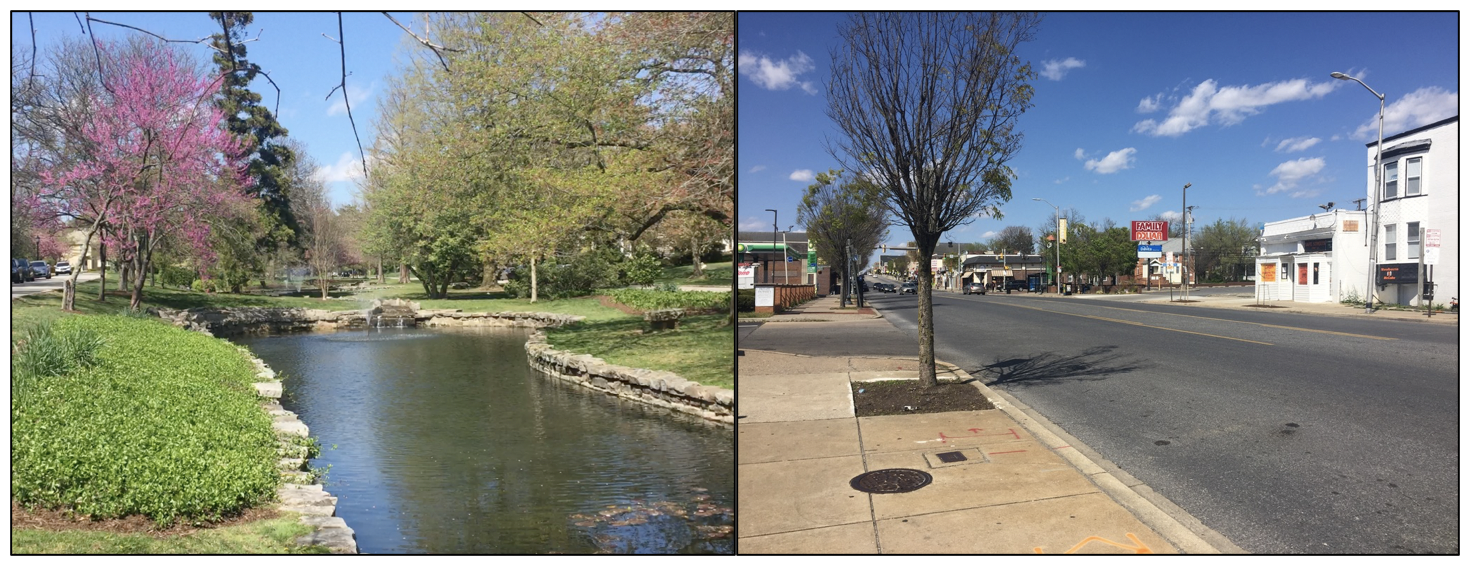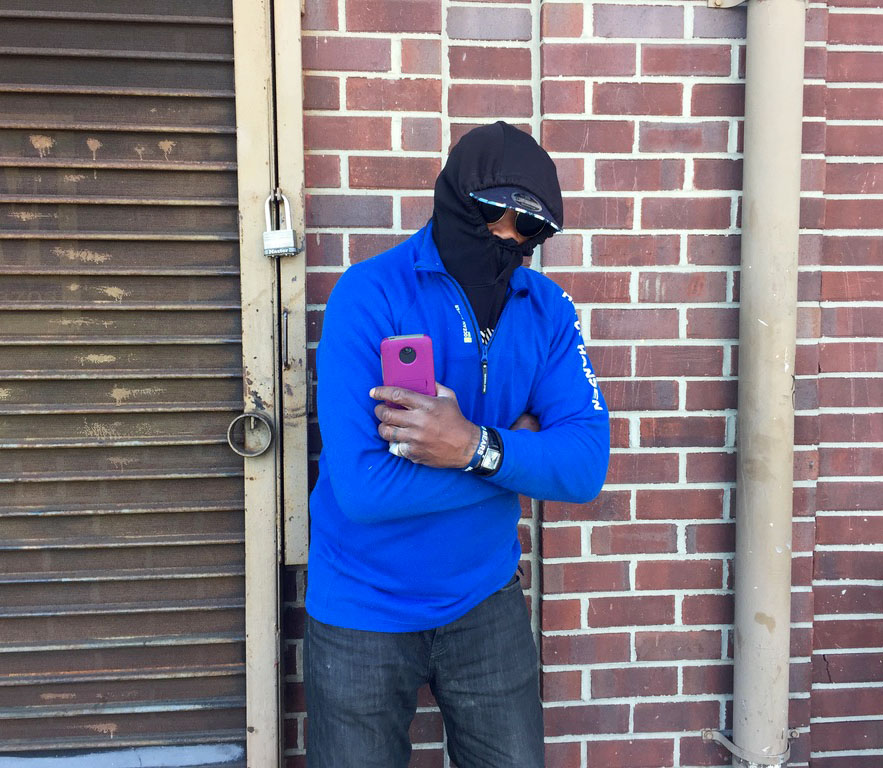
At left, Springlake Way embodies Baltimore’s wealthy side, aka Charm City. Two blocks away, York Road marks the transition to Murda-land, a nickname for the crime-ridden inner city.
By Caterina Erdas
A few weeks ago, I met a stranger at a bus stop in north Baltimore. When I struck up a conversation, he introduced himself: “I’m Tom Bing, his name reign supreme — one day I’ll win the million-dollar lottery.” He was African-American, in his early forties, and worked for a landscaping company near here.
This particular bus stop was at the intersection of Woodbourne Avenue and York Road, a symbolic landmark in Baltimore City. York Road is one of the dividing lines between Murderland (or “Murda-land” in Baltimorean) and Charm City, between poor, black Baltimore and wealthy white Baltimore.
As it is in many American cities, racism is built into everything in Baltimore, from schools and infrastructure projects to the nicknames we give our city. In Baltimore, which side of the street you live on makes a big difference in what kind of life you’ll live and for how long.
I live close to York Road, on the Charm City side. He was on his way home to Murda-land, West Baltimore, after working all day. Since Maryland’s governor had issued a stay-at-home order, coronavirus seemed to be on everyone’s mind. I was curious: was it on Tom Bing’s?
Not really, he said.
“Coronavirus is not going to hit us like it did New York. Everyone from around the world goes to New York. No one comes to Baltimore.”
He has a point, kind of. Relatively few visitors come to Baltimore, including those with COVID-19. However, many thousands of people live in Baltimore and work in DC, which means they can bring COVID-19 back home with them. Thousands more pass through the city every day.
Even though he’s not concerned about himself, Tom worries about his mother. “She is 69 and I’m her only baby boy. My sister is in Florida and my brother died. You only get one mother.”

Tom Bing strikes a gangsta pose for the camera. “My immune system is strong,” he says. “I don’t wear a mask.”
COVID-19 is especially lethal to the most vulnerable people in our society: the elderly, those with compromised immune systems, and African Americans living in poverty. That last group is vulnerable in three important ways.
First, predominantly black communities are generally less healthy than others. Many live in “food deserts”—areas with very few grocery stores — which severely limits access to healthy food choices. Junk food diets lead to chronic heart disease, high blood pressure, and diabetes.
Second, America’s healthcare system is biased against poor black communities, whose access to health insurance, hospitals and affordable medical care ranges from inadequate to impossible. Funding for community clinics is in short supply.
And finally, based on a long history of experimentation and exploitation, from forced sterilization programs to the Tuskegee experiments [https://www.history.com/news/the-infamous-40-year-tuskegee-study], African Americans distrust hospitals as an institution, which often prevents them from seeking medical attention when they are sick.
“If shit happens, shit happens—you can’t stop it,” said Tom Bing. “My immune system is strong, so I don’t wear a mask.” I was concerned by Tom’s blind faith in his immune system, especially for someone who takes public transportation every day. Wearing a mask reduces his likelihood of contracting COVID-19. More importantly, if Tom gets COVID-19 and is asymptomatic, he could easily spread the virus to a lot of people at his job, on the bus, or even his mother.
Many people in this world are misinformed, including in the United States. Baltimore is no exception. People with limited education, still working — or those who are busy homeschooling their kids — may have learned about COVID-19 only once, at the beginning of the pandemic. At the beginning of the pandemic, we were told that masks should be saved for medical professionals and not worn by the public. Now, the CDC and WHO’s message has changed. As new information comes to light about preventing the disease, they are left in the dark.
Sadly, the chaos and fear stirred by the COVID-19 pandemic is something that the people of Baltimore are very used to. It’s a tough place, and out of it comes tough people. They are also used to losing loved ones too soon. No matter the hardship, this pandemic included, they will be strong and persevere.
For most Baltimorons, it’s simply another item on the long list of unjust, heartbreaking, dehumanizing things they have to deal with every day.
